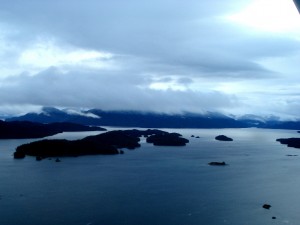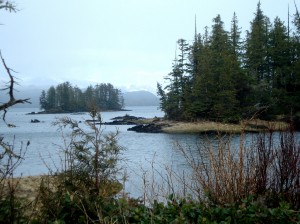Northern Gateway Approval: Reconciliation Postponed
Late in the day on June 17, with little fanfare but much anticipation among Indigenous communities, the environmental sector, and the oil industry, the federal government approved construction of the Northern Gateway pipeline.
 The government has, in the decision, placed all onus for the Indigenous/non-Indigenous relationship on Enbridge: “The proponent clearly has more work to do in order to fulfill the public commitment it has made to engage with Aboriginal groups and local communities along the route.” This is an abrogation of the nation-to-nation relationship that should lie at the heart of the Indigenous/non-Indigenous relations in Canada and which is our only hope for a reconciled future.
The government has, in the decision, placed all onus for the Indigenous/non-Indigenous relationship on Enbridge: “The proponent clearly has more work to do in order to fulfill the public commitment it has made to engage with Aboriginal groups and local communities along the route.” This is an abrogation of the nation-to-nation relationship that should lie at the heart of the Indigenous/non-Indigenous relations in Canada and which is our only hope for a reconciled future.
KAIROS joins with Indigenous peoples, other communities, and the environmental sector in expressing our dismay at the implication this decision has for reconciliation with Indigenous peoples and the earth. We also look with hope towards the resilience expressed by so many in this struggle and are encouraged to continue working towards ecological justice and Indigenous rights.
Northern Gateway will travel 1200 km through the Arctic and Pacific Ocean watersheds, crossing though traditional Indigenous territories before arriving on the rugged yet fragile coastline of northern British Columbia. Although it is claimed that 26 First Nations have given their consent to the project, there is no list of these nations, and many more –both along the path and the coast—have publicly signalled that they do not consent. So too have many non-Indigenous communities in British Columbia, including the residents of Kitimat.
Northern Gateway, which every day will carry 525,000 barrels of diluted bitumen to Kitimat from Edmonton and hundreds of thousands of barrels of condensate (used to dilute the bitumen) back to Alberta, is opposed by Indigenous, environmental, and community groups for reasons of both Indigenous rights and ecological justice.
 The United Nations Declaration on the Rights of Indigenous Peoples affirms that Indigenous peoples have the right to Free, Prior, and Informed Consent for development projects on their traditional territories. This right is entirely consistent with the Canadian constitution. Section 35 of the Constitution provides for the full protection of the aboriginal and treaty rights of Indigenous peoples in Canada. This includes, among other rights, the right to fishing and to land, both of which are potentially affected by the pipeline.
The United Nations Declaration on the Rights of Indigenous Peoples affirms that Indigenous peoples have the right to Free, Prior, and Informed Consent for development projects on their traditional territories. This right is entirely consistent with the Canadian constitution. Section 35 of the Constitution provides for the full protection of the aboriginal and treaty rights of Indigenous peoples in Canada. This includes, among other rights, the right to fishing and to land, both of which are potentially affected by the pipeline.
Ecologically, there are significant concerns about the impact of a possible rupture on undisturbed wilderness, hundreds of rivers and streams, spawning grounds, and wildlife habitat along the pipeline path. But these concerns reverberate beyond the path. The bitumen will be transferred to oil tankers that will have to navigate treacherous waters, such as the Hecate Strait, for transport across the Pacific. The potential danger to marine life is astounding and will have repercussions beyond those which might be imagined by most Canadians. In 2012, BC Native Ministries of the United Church of Canada told the General Council that:
… This pipeline threatens to poison the water we drink and the sea where we cast our nets. This precious resource is the giver of life, but some sins do not wash away. Within Prince Rupert Presbytery, the Turtle Point burial ground is contaminated by the shipwreck of The Queen of the North. This wreck and others like it on the coast of British Columbia foul the surrounding marine life with poisons…. First Nations communities continue to suffer from these costly mistakes and live in fear of even larger ones to come because the rivers, lakes, and the Pacific Ocean directly sustain us culturally and economically. Unique creatures such as the Spirit Bear take fish from the same waters as we do. Threatened species and endangered whales call these waters home. The salmon swim far up into the rivers of the interior, bringing food to last the people through the long winter. The eagles will still fly overhead and bear witness to our deeds….
In addition, the global costs of this project can be counted in greenhouse gas emissions, and the continuation of runaway climate change. As KAIROS has previously noted, increased pipeline capacity necessitates increased production in the tar sands
The government has acknowledged these concerns obliquely by stating that the approval is conditional on meeting the review panel’s 209 recommendations and improving relations with Indigenous Peoples. Yet the panel’s ecological conclusions have been critiqued roundly by a panel of 300 scientists, and the consultation process with First Nations has been characterized by government’s own experts as deeply flawed.




